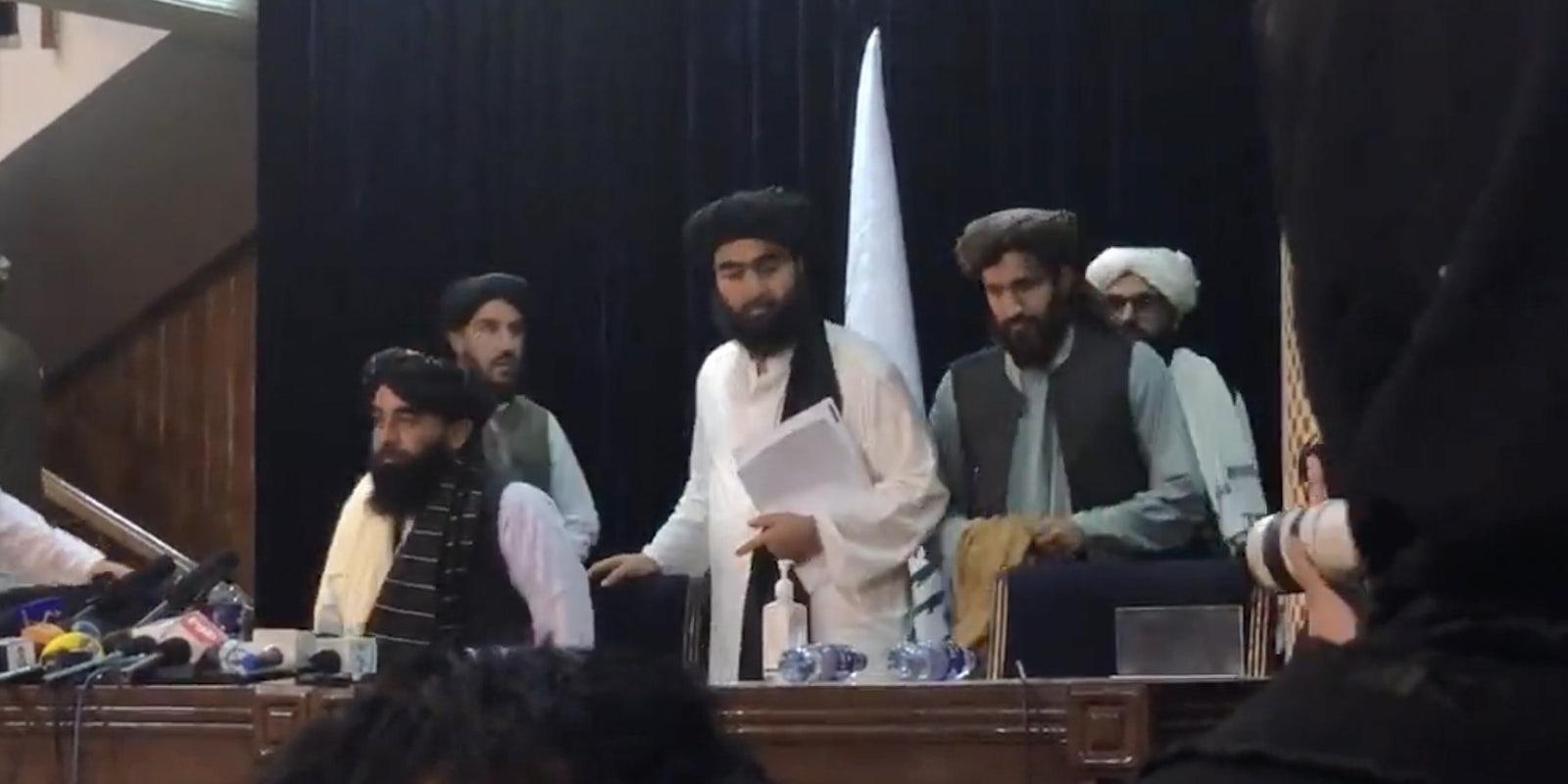In its first press conference since taking power in Afghanistan, the Taliban chose to take the same tactic of every far-right, reactionary voice in governments across the country (U.S. included): Blast Facebook for censoring its content.
On Tuesday, Facebook announced it would ban Taliban content across its platforms, including Instagram and WhatsApp, citing its anti-terrorism and extremism policies. The ban comes despite Facebook having frequently made exceptions to violent regimes, given the newsworthiness of announcements and proclamations from those in power.
And at a press conference in Kabul, Taliban spokesperson Zabihullah Mujahid called out Facebook in the same way conservatives across America have similarly complained about the tech giant.
When asked about whether the Taliban would revert to the regressive policies it was known for before the U.S. invaded, Mujahid pivoted Facebook.
“This question should be asked to those claiming to be promoters of free speech, who do not allow publication of all information,” he said, mocking it for taking down their accounts this week.
Meanwhile, Twitter is taking a different path when it comes to the Taliban. Although it, like Facebook, banned President Donald Trump for inciting violence in the wake of the Jan. 6 Capitol riot, the site will allow the spokesperson for the Taliban to remain online.
In a statement to Mediaite, Twitter said it would not ban the Taliban spokesperson but that it will “continue to proactively enforce” its policies against “glorification of violence, platform manipulation, and spam.”


